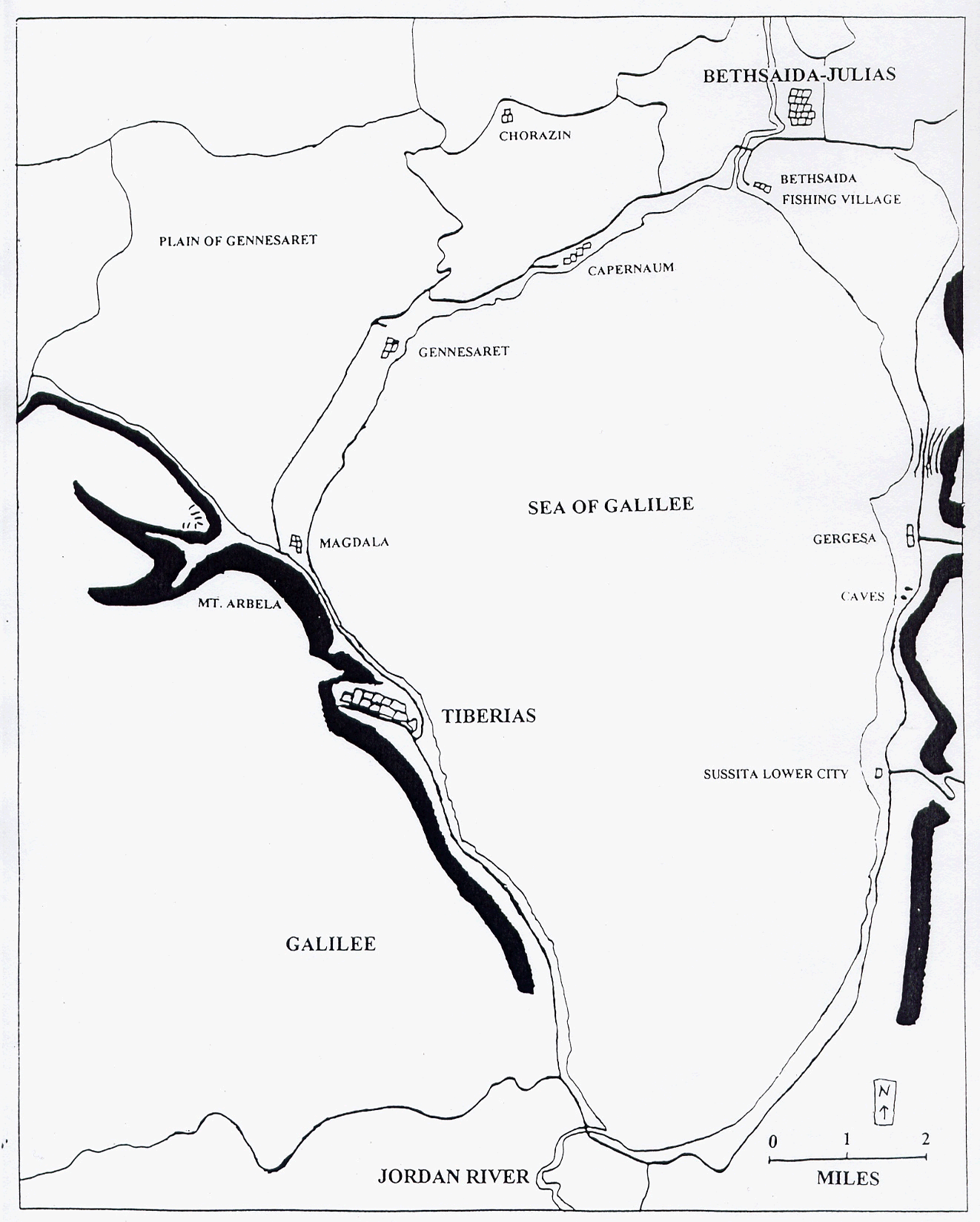26 – Calls a Tax Collector
Where: Capernaum, Galilee
Scripture:
Notes:
Listen to audio
One day Jesus left the town of Capernaum and walked west along the road to the place where it intersected with the “Way of the Sea” [the major road on the Egypt to Damascus trade route]. There he approached the “import/export tax booth” where he saw a couple of tax collectors and some soldiers, lounging in the shade nearby, waiting for their next victim. The temperature was over 95 degrees and the humidity was high.
The opportunity to collect taxes was auctioned to the highest bidder. Then the new tax collector determined all his costs (price for territory, amount to be raised for the government, salaries, business expenses, home, vacations, etc.) and made very certain that he collected extra (sometimes collecting double or triple what was due) to assure a profit.
The soldiers were here to enforce payment and their salaries were considered a “cost of doing business”. This was a high traffic station and so the costs were high, and so were the taxes the collector charged. The travelers would have to pay no matter which road they might use, and everyone had to pay something just to use the road, so they might as well pay and then be on their way.
Jesus knew one of the tax collectors. He had seen him before and had even spoken with him. Jesus knew that Levi (Matthew) was concerned about the Kingdom. Jesus knew that he did this nasty job while at the same time trying to live according to the Torah (Law) as best he could.
* No other Gods – He did not believe in the Roman gods even when he offered the required sacrifices to their gods.
* Don’t take God’s name in vain – He never even spoke the name of YHWH.
* Keep the Sabbath holy – He tried not to work too hard on the Sabbath (but Gentiles did travel).
* Honor parents – His parents were WELL cared for (that was one of the reason he collected so much in taxes).
* No murder – Let the soldiers handle any necessary trouble.
* No adultery – He never had any ‘long term’ relationship outside of his marriage.
* No stealing – He never took “too” much without permission (but he knew how to apply pressure).
* No false witness – He did not lie IN COURT (though he did not always tell the whole truth).
* Do not covet – He didn’t have to (he already had more then his neighbors).
Jesus knew that Matthew had been seriously questioning that lifestyle, and had been seriously considering the message that Jesus was proclaiming, and knew that he was now “ready”. So Jesus simply said, ‘follow me’. Jesus had now officially called him to leave his former life and to become a fulltime disciple. Matthew got up and walked away with Jesus.
Matthew realized what it meant that Jesus had come seeking him. Jesus believed that it was not enough to wait for a sinner to change their way. One must go to the sinner and encourage them to change their way. One must recognize the difference between the “healthy and unhealthy”, but unlike the religious leaders who would “talk the talk,” Jesus believed one should express God’s steadfast love by reaching out with compassion and “walking the walk”. A doctor went to the sick to help them get better, not wait till they had already recovered and could come by for a visit.
With this in mind, Matthew invited Jesus to his house for dinner, and to meet many more “ill” people. Jesus was more then glad to accept. As usual the religious leaders took issue with the willingness of Jesus to be “contaminated” by contact with these unclean people, but Jesus would not let their prejudice stop him. The Temple ritual was lower on God’s list of priorities, according to Hosea, then loyalty and knowledge of God’s will.
When Jesus spoke of patching old garments and of filling old wineskins, he meant, on the spiritual level, that the old legal system would not be able to adjust to the new covenant that God was offering.
DAB
No questions have been asked yet.

